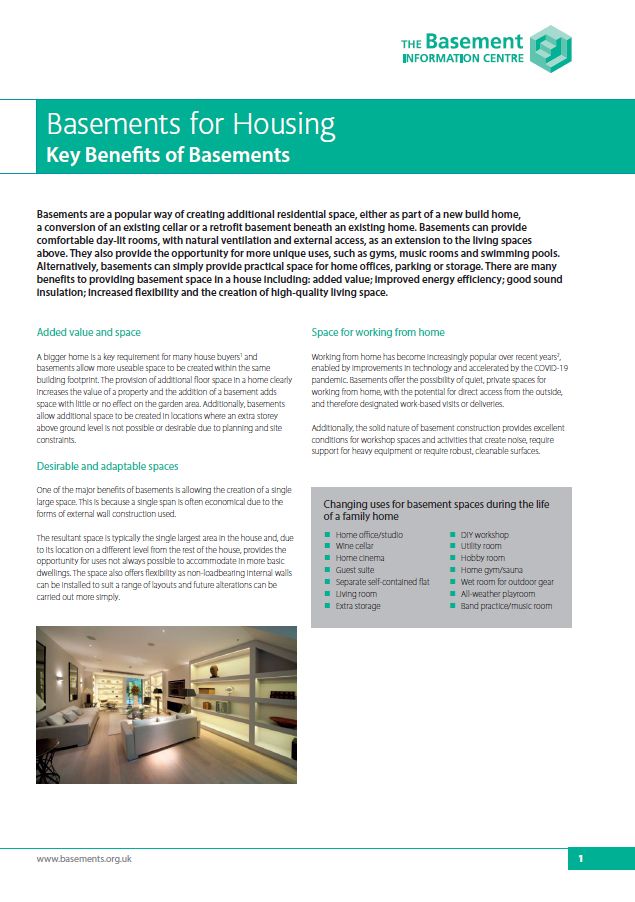Sustainability benefits
There are many sustainability benefits associated with basements. They are energy efficient spaces where the thermal mass of the structure may be used as part of the strategy to control temperatures within the building and this is discussed further below.
For new developments, particularly where large areas of excavation and significant foundations are required, creating a basement allows this space to be utilised, rather than backfilled. The foundations may be integrated with the basement slab, thus optimising the design.
Similarly, on sloping sites, designers either have the option to build at the higher level, using a podium or infill beneath the building, or to build into the slope. Since building up will likely require excavation below the building for foundations, this excavated space may instead be used as a partial basement, within the slope.
For existing buildings, converting an existing cellar or retrofitting a new basement may enable the building to be adapted and repurposed, rather than demolished to allow for a new development. Reuse of an existing structure is a fundamental principle of construction in a circular economy.
Additionally, basements are typically constructed of concrete or masonry, which have many inherent sustainability benefits (see box right). There is a useful synergy between many forms of low carbon concrete and the performance requirements for basement construction.
